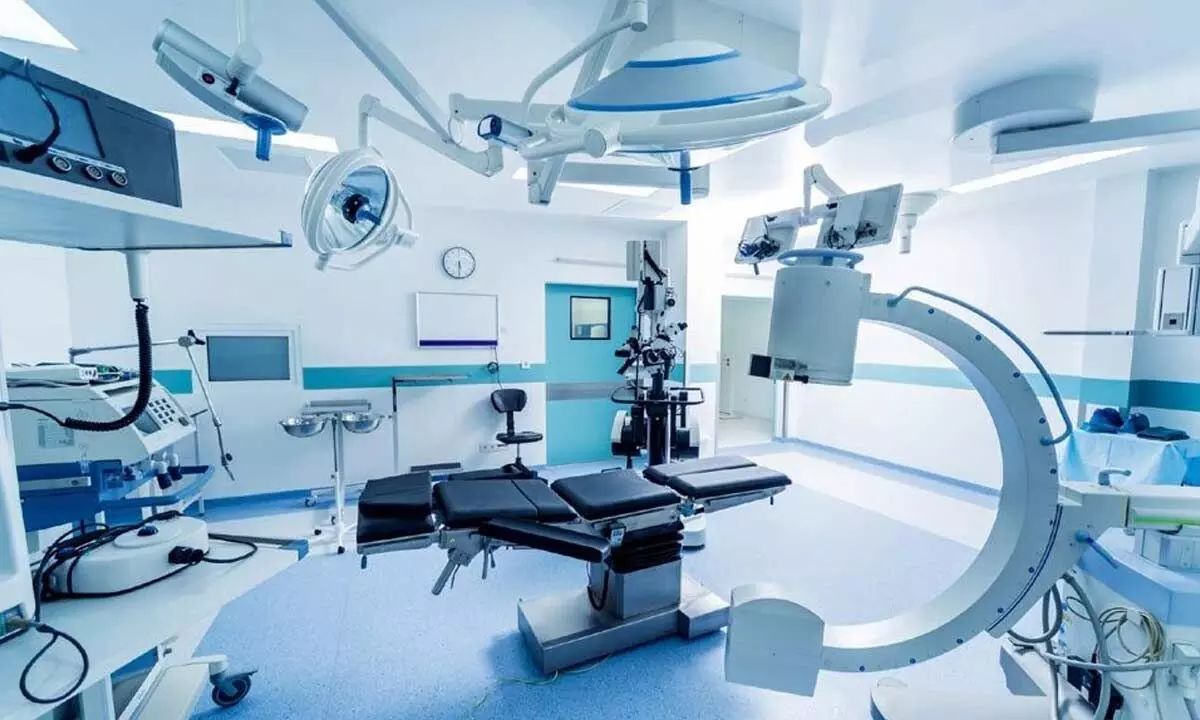What should govt do to make Indian medical devices globally acceptable?
Adapting Indian standards as per global standards would make Indian medical device manufacturers more competitive and acceptable in the global market
image for illustrative purpose

The Department-Related Parliamentary Standing Committee (DRPSC) on Health and Family Welfare has recently recommended to the central government to introduce standards and certification processes, particularly for class C and class D medical devices, comparable to global standards. According to the widely accepted classification criteria, the risk associated with the class A medical devices is perceived to be low, while class B has low to moderate risk, C has moderate to high risk and class D has the high risk. Parliamentary Standing Committee has also recommended to the Ministry to extend financial support to the local manufacturers in capacity building for compliance to US and European Union regulations till the domestic industry catches up with the comparable standards and certification process.
The Parliamentary Panel, which has looked into the medical devices regulation in the country, observed that the Indian medical devices industry presently lacks research ecosystem and infrastructure for manufacturing of high tech, advanced medical devices (Class C&D) and the Indian medical devices industry does not have facilities to produce such medical devices comparable to global standards. The Parliamentary committee, in its 138th report on 'Medical Devices: Regulation & Control', the committee, appreciating the Quality Council of India (QCI) for filling up the vacuum in quality certification space by extending the option of Indian Certification of Medical Devices (ICMED) 13485, said that the QCI can play a pivotal role in establishing norms of quality and ensuring that Indian manufactured products have competitive product advantage, vis-à-vis, the international standards in terms of quality.
More importantly, the Committee headed by Member of Parliament Professor Ram Gopal Yadav, also recommended to the central government that along with compulsory compliance to Quality Management System as per schedule 5 of the Medical Devices Rules, 2017 (MDR- 2017), the government should also allow cognisance to third party assurance schemes like ICMED 13485.
The country's apex quality facilitation and national accreditation body QCI had on March 15, 2016 launched the voluntary certification scheme named Indian Certification for Medical Devices Scheme (ICMED) - the first indigenously developed international class certification scheme for the medical devices in India to reduce time and cost-run for obtaining globally accepted quality certification for Indian companies thus eliminating the malpractices of sub-standard or fraudulent certification or quality audits. An initiative of the Association of Indian Medical Device Industry (AIMED) in collaboration with QCI and the National Accreditation Board for Certification Bodies (NABCB), ICMED was aimed at enhancing patient safety and providing consumer protection and much needed product credentials to manufacturers for instilling confidence among buyers and users. ICMED was also aimed to fill a big regulatory void as there was no India-specific official quality assurance system till then, due to which Indian medical device manufacturers encountered loss of competitiveness to foreign companies while consumers ended up paying extra premium with no concomitant benefits.
At present, the country has only 18 certified Medical Device Testing Laboratories that have been approved by the Central Drugs Standard Control Organisation (CDSCO) and that is grossly insufficient keeping in view the size of the country. It is a fact that having adequate common infrastructure including accredited laboratories in different regions of the country for standard testing would significantly encourage local manufacturers to get their products tested for standards and such measures undertaken would also help in reducing the cost of production which ultimately will improve the availability and affordability of medical devices in the domestic market.
While setting the standards and benchmark of medical devices the foremost factor which should be considered is health. The Bureau of Indian Standards (BIS) should focus on harmonising the Indian standards with world-class and globally accepted quality standards. Adapting Indian standards as per global standards would also help Indian medical device manufacturers in the global market as it would make them more competitive and acceptable, which in turn would transform India into a net exporter of medical devices, spare parts and services. So, the BIS should periodically update Indian Standards to corresponding global medical device standards as complying with Indian standards is affordable for local manufacturers in comparison to global standards. The BIS should also encourage manufacturers to demonstrate and adhere to conformance to essential principles of the medical device concerned, as this would reorganise Indian products to achieve greater international acceptance.
(The author is freelance journalist with varied experience in different fields)

